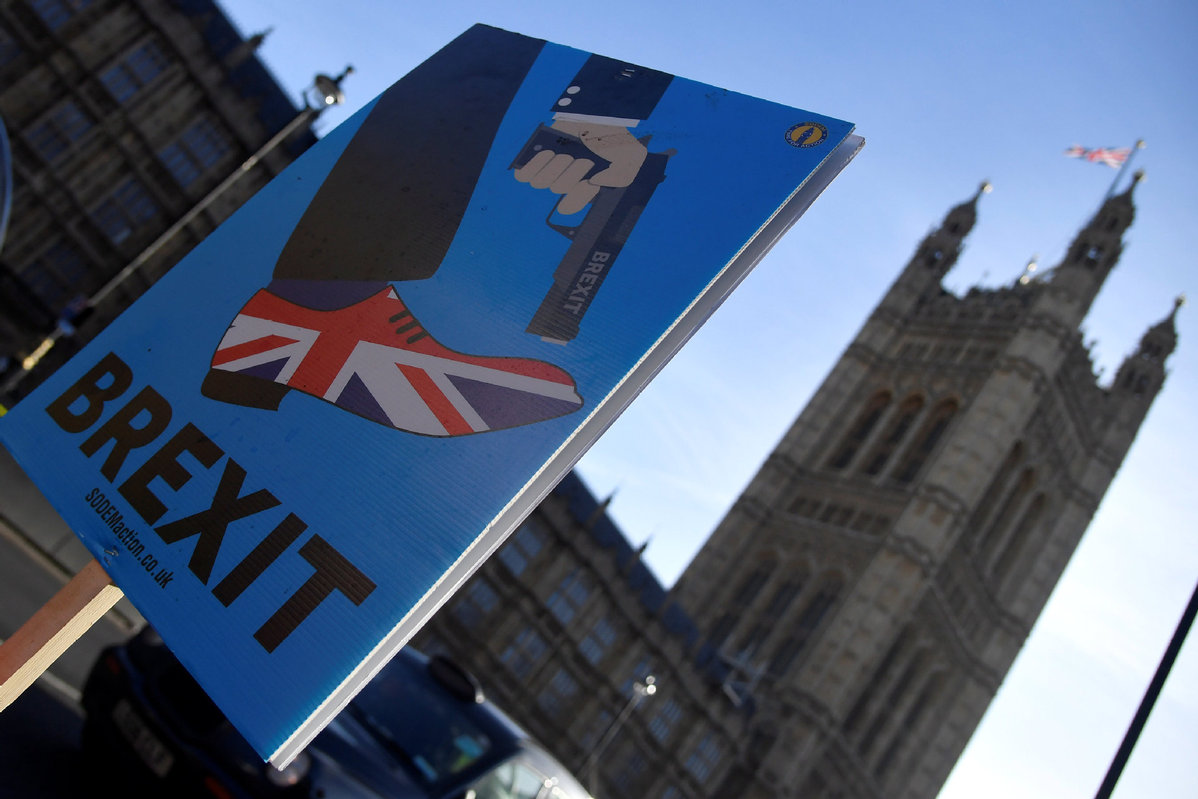Cabinet discusses plans for no deal Brexit


The UK's Prime Minister Theresa May's Cabinet met on Tuesday to discuss plans for a no-deal Brexit as the clock reached 101 days until Britain's scheduled departure from the European Union – and still no deal approved by Parliament.
Monday was another eventful day in the Brexit process, as Labour leader Jeremy Corbyn announced he was tabling a motion of no-confidence in May, saying she was "running down the clock" after finally confirming that MPs would have a chance to vote on her proposal in the week starting Jan 14th.
This was seen as a largely symbolic gesture, however, and dismissed by Downing Street as "silly political games".
Members of other parties have urged Corbyn to go for a no-confidence vote in the government as a whole, rather than just the prime minister, which would have to be allowed to take place. If such a vote was a success, it would trigger a general election.
Corbyn has yet to show any inclination to take such a step but shadow housing secretary John Healey said such a move was "a question of when, not if".
At Tuesday's Cabinet meeting, ministers were told how much money each department will get to prepare for a no-deal Brexit.
This prospect is one that alarms many MPs because of the huge uncertainty it would cause for so many aspects of national life. Communities Secretary James Brokenshire admitted that no deal would have "consequences", so it was only sensible to draw up plans for such an eventuality.
"We have been taking no deal seriously for quite some considerable period," he told the BBC's flagship daily radio news program, Today. "It's not what we want to do, it's not what we still expect to do ... but I think it is right and proper that we maintain our work on preparing for no deal, however reluctantly."
Health Secretary Matt Hancock confirmed planning is in place across the National Health Service for no deal, saying it was "responsible".
"We've instituted full no deal planning within the NHS already, and I would like to see the whole of government going to that position because it's the responsible thing to do," he said.
May caused uproar last week when, at 24 hours' notice, she postponed an MPs vote on her Brexit proposals, which had already been approved by European leaders, but which were widely expected to be rejected by MPs.
This led to an internal leadership challenge from her own MPs, which she survived with a far-from-convincing margin of 200 votes to 117.
That prompted prominent Brexit supporter Jacob Rees-Mogg to say that May "ought to go and see the Queen urgently and resign" as she had "clearly lost the support of the back benches of the Conservative Party."
Six days later, however, he said May had won "the confidence of the Conservatives in this House last week" and "assured her that she therefore commands my confidence too".
































